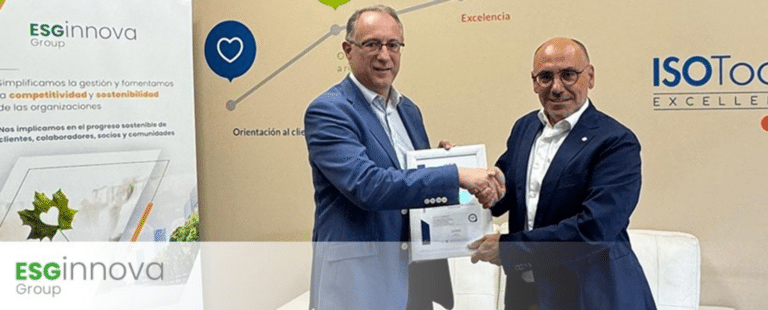The ISO 42001 standard is the first published standard on Artificial Intelligence management systems, developed to help organizations establish a solid framework for AI governance. With this standard, different regulations and ethical codes are integrated, aligning with the recently approved Artificial Intelligence Law by the European Parliament. The primary purpose of this law is to protect fundamental rights and promote environmental sustainability, setting clear guidelines for AI systems according to their risks and impact.
Additionally, ISO 42001 defines specific obligations for high-risk systems, such as those using critical infrastructure, related to the educational and training fields, providing essential public and private services, and those in the judicial sector. These systems must conduct analyses and audits to mitigate risks, as well as comply with transparency requirements, among others.
Innovation and Quality with the ISO 42001 Standard
Innovation is one of the fundamental pillars of ESG Innova Group. Therefore, the company has incorporated artificial intelligence into its platform, in line with its values and the quality it aims to offer its clients, making this tool the most effective in the market. Obtaining ISO 42001 certification demonstrates the commitment to maintaining high standards of excellence in AI management, sending a message of transparency, thorough analysis, and guaranteed risk mitigation in all processes.
ESG Innova's CEO, Miguel Martín Lucena, expressed his pride during the certification presentation by José María Domínguez Sánchez-Barranco, Director of Operations at OCA Cert Andalucía: "We are very proud to be the first company based in Spain and Latin America to obtain ISO 42001 certification in Artificial Intelligence. This recognition not only underscores our commitment to innovation and quality but also reinforces our dedication to responsible AI management. At ESG Innova Group, transparency and risk mitigation are fundamental to ensuring customer satisfaction and trust. This certification is a testament to our ongoing effort to maintain the highest standards of excellence in all our processes."
Zertia
In a booming sector like artificial intelligence, where the benefits of its implementation are so high, the demand for companies capable of conducting audits that guarantee these types of ISO certifications is increasingly higher. Although this market niche is more developed in North America, pioneers like Zertia can be found in Spain.
This young auditing firm focuses on offering cutting-edge services to ensure that AI models and algorithms comply with the highest global standards and regulations. Holding ISO certifications not only demonstrates quality but also ensures greater business confidence, guaranteeing that the use of AI is fair, transparent, scalable, explainable, and sustainable.
The Importance of Incorporating Artificial Intelligence into the Workplace
AI offers numerous advantages that can transform entire sectors by optimizing processes, improving efficiency, and fostering innovation. One of the most significant benefits of Artificial Intelligence at work is the automation of repetitive and tedious tasks. This not only frees employees from these activities, allowing them to focus on more strategic and creative tasks, but also increases accuracy and reduces human error. For example, in the manufacturing industry, robots and AI systems can handle mass production with efficiency and consistency that surpass human capabilities.
Moreover, AI enhances business decision-making by providing advanced data analysis. Artificial Intelligence algorithms can review large volumes of data in real-time, identifying patterns and trends that would be impossible to detect manually. This allows companies to anticipate market needs, personalize offers, and improve customer satisfaction.
AI also plays a crucial role in cybersecurity, as AI systems can detect and respond to threats in real-time, protecting sensitive information and ensuring business continuity.






